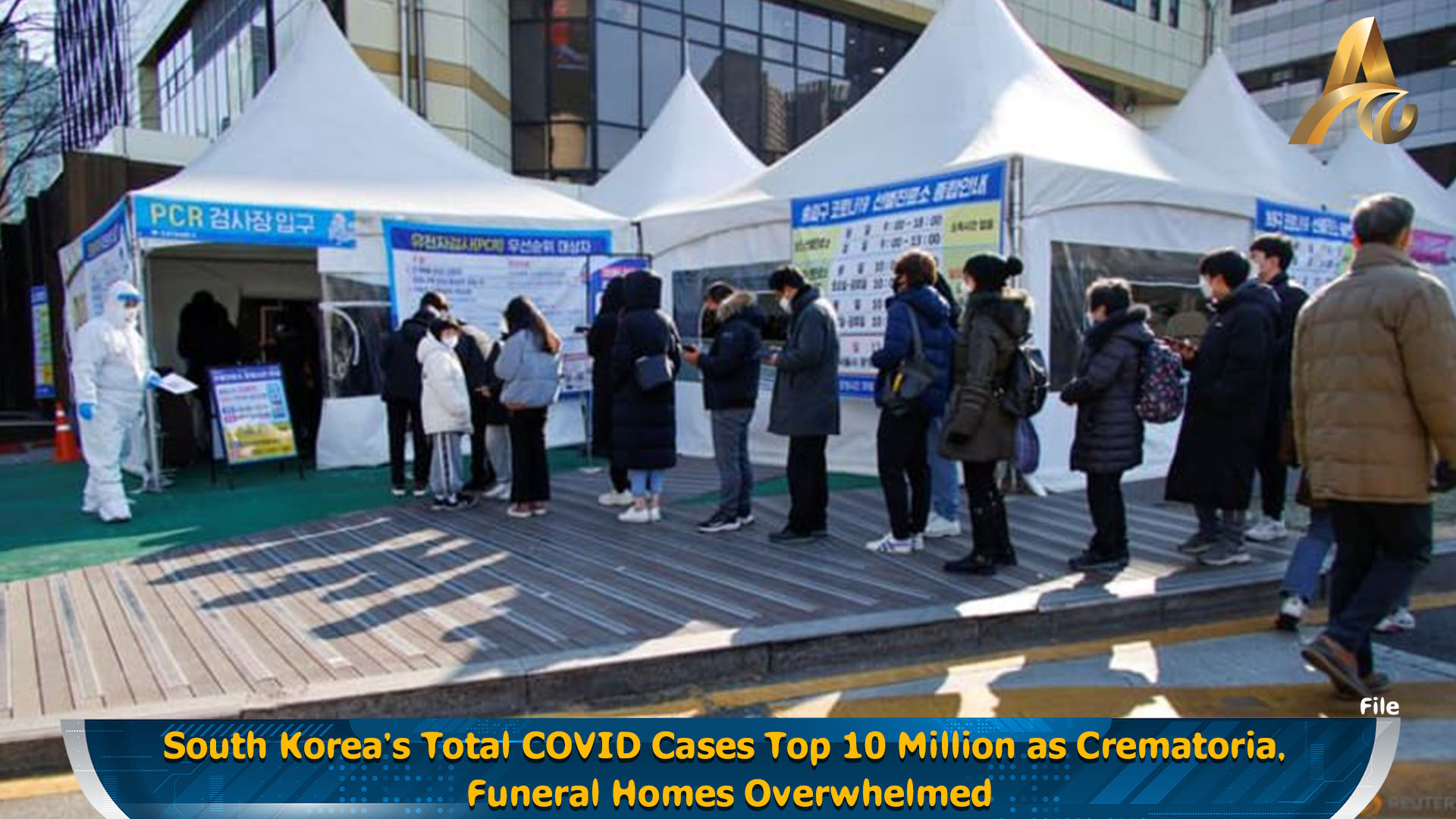INTERNATIONAL: South Korea's total coronavirus infections topped 10 million, or nearly 20 percent of its population, authorities have said on Wednesday, as surging severe cases and deaths increasingly put a strain on crematories and funeral homes nationwide.
The country has been battling a record COVID-19 wave driven by the highly infectious Omicron variant even as it largely scrapped its once aggressive tracing and quarantine efforts and eased social distancing curbs.
The Korea Disease Control and Prevention Agency (KDCA) has reported 490,881 cases for Tuesday, the second highest daily tally after it peaked at 621,205 on March 16. The total caseload rose to 10,427,247, with 13,432 deaths, up 291 a day before.
The country's infection and death rates are still far below those recorded elsewhere, as almost 87 percent of its 52 million residents are fully vaccinated and 63 percent have received booster shots.
But the death toll nearly doubled in just about six weeks, with daily fatalities peaking at 429 last Friday, fuelling demand for funeral arrangements.
The government on Monday has instructed the 60 crematories nationwide to operate for longer hours to burn up to seven bodies from five, and the 1,136 funeral parlours capable of storing some 8,700 bodies to expand their facilities.
"We've discussed ways to reinforce the crematories to reduce public inconvenience," health ministry official Son Young-rae has said. "Crematories' capacity is increasing but there are still regional differences."
Authorities have already boosted the combined daily cremation capacity from about 1,000 to 1,400 per day starting last week. But a large backlog of bodies and a long wait continued to be reported in the densely populated greater Seoul area, Son said.
Health ministry data showed that the 28 crematories in Seoul city were operating at 114.2 percent capacity as of Monday, while the ratio stood at about 83 percent in other regions such as Sejong and Jeju.
Crematories will be temporarily allowed to receive reservations from outside their regions, which is currently banned by some local governments, to ease the pileup, Son said.
The number of critically ill patients has been hovering above 1,000 over the past two weeks, but it could go up to 2,000 in early April, another health ministry official Park Hyang has said.
Around 64.4 percent of the intensive care unit beds are occupied as of Wednesday, compared with some 59 percent two weeks earlier.
"The medical system is under substantial pressure, though it is still operated within a manageable range," Park has told a briefing on Wednesday.
"We would focus more on high risk groups going forward, and make constant checks to ensure that there is no blind spot."






















